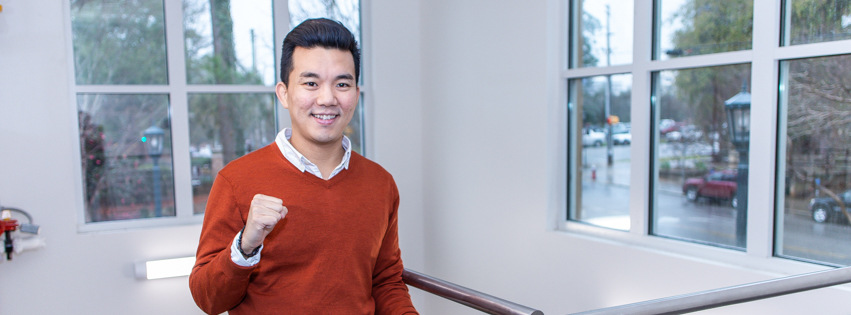Feb. 5, 2020
Chris Woodley • cwoodley@mailbox.sc.edu
Due to varying work schedules and hours and unpredictable incomes, affordable and quality child care can be difficult for low-income families with young children.
The Child Care and Development Fund program (also called child care subsidies) provides critical financial support for low-income families and promotes economic independence and child development by subsidizing child care costs for low-income families. However, overall access to subsidies is substantially low. Upcoming research by Assistant Professor Jaeseung Kim will attempt to explore the low rate of child care subsidies for low-income families.
Last month, Kim and Assistant Professor Yoonsook Ha of the Boston University School of Social Work were awarded a one-year grant from the Robert Wood Johnson Foundation for their research, “State-Level Child Care Subsidy Policy Generosity and Subsidy Take-Up.” The RJWF is the country’s largest philanthropy, and actively supports research on health issues and health inequity to improve the health and health care of all Americans. According to Kim, the foundation provides significant support for scholars who study policies for low-income families and their children.
“Professor Yoonsook Ha and I met at the 2016 Population Association of America Conference in Chicago. We started talking about our research and found out we have similar research interests on how the child care subsidy policies are helping low-income working families with young children,” Kim says.
The purpose of the research is to examine how each state’s policy rules in child care subsidies affects access to subsidies and the well-being of children in disadvantaged families. According to Kim, only eight percent of potentially eligible children under federal guidelines received subsidies in 2016. While the subsidy take-up is low for families of color, families with more economic resources and potential are more likely to receive subsidies and have better health outcomes than those with less economic potential. Inequitable access to subsidies may widen existing gaps in health inequity for disadvantaged families and children.
Kim and Ha’s study plans to determine how individual and collective child care subsidy rules (state policy generosity) affect subsidy take-up and child well-being. There has previously been limited research exploring this issue.
“We plan to examine the problems that keep eligible families from receiving help and tackling those issues, such as why the rates are low and the state policies that may influence the low take-up rate,” Kim says. “Our project will try to explore how each state’s variation of the policies influences child care subsidy recipients and how it influences their children's health outcomes.
We are particularly interested in children's health outcomes and the interaction with their parents. This is a strong predictor of future child development.”
